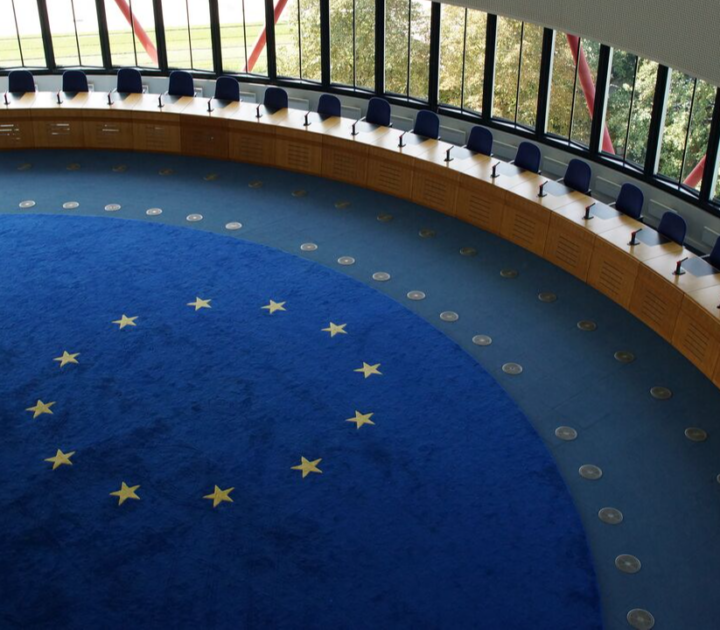When social and environmental concerns first made their way onto the corporate agenda in the 1980s, it was primarily driven by the desire to avoid accidents or scandals – often in hard-to-monitor distant markets – that might damage the brand or reputation of the company.
Sustainability remains to some extent tainted by that heritage. It retains a defensive connotation and companies tend to concentrate mainly on what could go wrong and how to avoid attracting the attention of regulators or NGOs. Framing sustainability as a “challenge” only reinforces that negative impression. Companies need to move beyond this focus on risk, constraints and compliance.
Our research shows that a deep commitment to sustainability beyond compliance is associated with higher financial returns,i so the framing needs to reflect the possibilities that it offers.
Sustainability means business
Pursuing a sustainability strategy can be liberating rather than restrictive. It can help to unlock performance on three vital fronts – innovation, employee commitment, and reputation.
Spurring innovation
The mindset of looking for opportunities in sustainability is well illustrated by the success story of the Swiss company Freitag. Unable to find the kind of sturdy, water-resistant bags they needed as cyclists, its founders hit upon the idea of making their own bags from used truck tarpaulins, bike tires and seat belts. Their bags each bore unique designs and proved immensely popular among bike couriers, before catching on as fashion statements within the wider population – to the extent that a Freitag bag even features in New York’s Museum of Modern Art.
Established businesses can also leverage sustainability to drive innovation. Take the case of Desso, a mid-sized Dutch carpet tile manufacturer that decided to switch to carpets that could be entirely recycled.ii Working with its suppliers, the company came up not only with new materials with anti-allergy properties, but also with new designs that appealed to architects as opposed to industrial designers. In the process, Desso transformed itself from a low-margin, competition-on-price player to a premium-priced competition-on-differentiation one.
The key point is that sustainability issues such as regulatory standards can actually stimulate companies to find novel solutions. Treating sustainability exclusively as a constraint is self-limiting.
Mobilizing employees
A company’s sense of purpose has to go beyond creating shareholder wealth if it is to inspire employees. The chance to make a difference in the world can unleash collective energy – as evidenced by recent research showing that employees in companies with strong CSR are more engaged and productive.iii
Consider the case of the Bolivian pasta company Coronilla. Taking charge of the family business as it struggled for survival, Martha Wille became convinced that the best way to rebound was to pursue a sustainability oriented strategy. Her view was that the workforce would only commit to the painful measures ahead if the company had a social purpose. The company transformed itself from a traditional wheat pasta producer to an exporter of specialized gluten-free pastas and snacks made from Andean grains. It established Fair Trade relations directly with Andean farming communities to procure raw materials – and it set up a positive discrimination policy to favor the hiring of women and disabled people in the workforce. The radical change program paid off and Wille later handed over a healthy business to her son.
Similarly, the Dutch logistics giant TNT embarked on a sustainability strategy back in 2001 that propelled the company to the top of the Dow Jones Sustainability Index for its sector. Peter Bakker, at the helm until 2012, commented: “[Our] service is as good as the motivation of the employees. As CEO, you can talk until you are blue in the face, but the day-to-day interface with customers is done by the mailmen, the mailwomen, the parcel drivers. So anything we can do to drive up their pride, to make them a little more motivated for TNT, will help them put in that extra step for the customer.”iv
A coherent sustainability strategy can change the energy within the organization as well as the nature of relationships with customers and suppliers. With its own sustainability efforts bearing fruit, TNT was able to turn its attention to helping suppliers and subcontractors develop models to estimate emissions and meet their goals too.
Enhancing reputation
The previous examples show that sustainability can significantly raise the profile of obscure or unglamorous companies. Sustainability is a hot issue. It attracts publicity. In fact, according to a 2012 survey by the Reputation Institute, 42 percent of how people feel about a company is based on their perceptions of the firm’s CSR practices. Sustainability can even help to rebuild the image of well-established companies whose products or practices have previously drawn criticism from NGOs. For example, the UK-based retailer Tesco has been criticized for its crushing market dominance domestically. But when the company uses that power to force its suppliers to cut down on packaging or to educate customers to bring their own bags, the sustainability gains are significant – and its public image has also benefited.
Besides influencing consumer purchasing and regulatory scrutiny, a reputation for sustainability also sways the decisions of prospective employees. In a context where attracting top talent is increasingly difficult, a company’s approach to the environment, ethics, and transparency can attract or deter applicants with multiple offers. Among MBA graduates, 40 percent rate CSR as a major criterion when job hunting.v And a Rutgers University report on “What workers want in 2012” revealed that over a third of entry-level graduates would be willing to take a 15 percent pay cut in order to work for a company committed to CSR.
But a sustainability positioning is no quick fix. The biggest mistake companies can make is to broadcast their sustainability intentions without following through. It discredits the value of ongoing initiatives and lays the company open to accusations of “greenwashing” – as BP and others have found to their cost. Corporate sustainability can prove a platform for growth and change and a valuable tool for exploring ways to drive out costs, innovate, galvanize employees, attract talent, deepen ties with partners and reach new customers. The key question is no longer whether sustainability pays, but how it pays. Our research clearly indicates that a dedicated sustainability strategy is most positively related to firm performance.
Jean-Louis Barsoux is a senior research fellow at IMD.
Daina Mazutis is a Professor of Strategy, Leadership and Ethics at IMD. Her research interests include strategic leadership, decision making and corporate social responsibility.
This article is drawn from ‘Quest: Leading Global Transformations,’ a new IMD book that aims to help business leaders and their organizations navigate major transformations more effectively.
References
i Mazutis, D. (2010). “Why zero is not one: Towards a measure of corporate social strategy.” Academy of Management Best Paper Proceedings, Montreal, Quebec: Winner – Social Issues in Management Division Best Paper Award.
ii The case examples cited are all taken from published cases written by IMD professors.
iii See M. A. Delmas & S. Pekovic (2013) “Environmental standards and labor productivity: Understanding the mechanisms that sustain sustainability,” Journal of Organizational Behavior, 34(2): 230-252.
iv Peter Bakker interviewed by Paul Hunter (2009) “Responsible leadership summit,” featured on IMD’s exclusive Corporate Learning Network “Wednesday Webcast” series, February 2.
v Hollender, J. Orgain, A., & Nunez, T. (2010) “The business case for sustainability,” Sustainability Solutions Paper, Kaplan EduNeering/Seventh Generation Sustainability Institute: Princeton, NJ.






